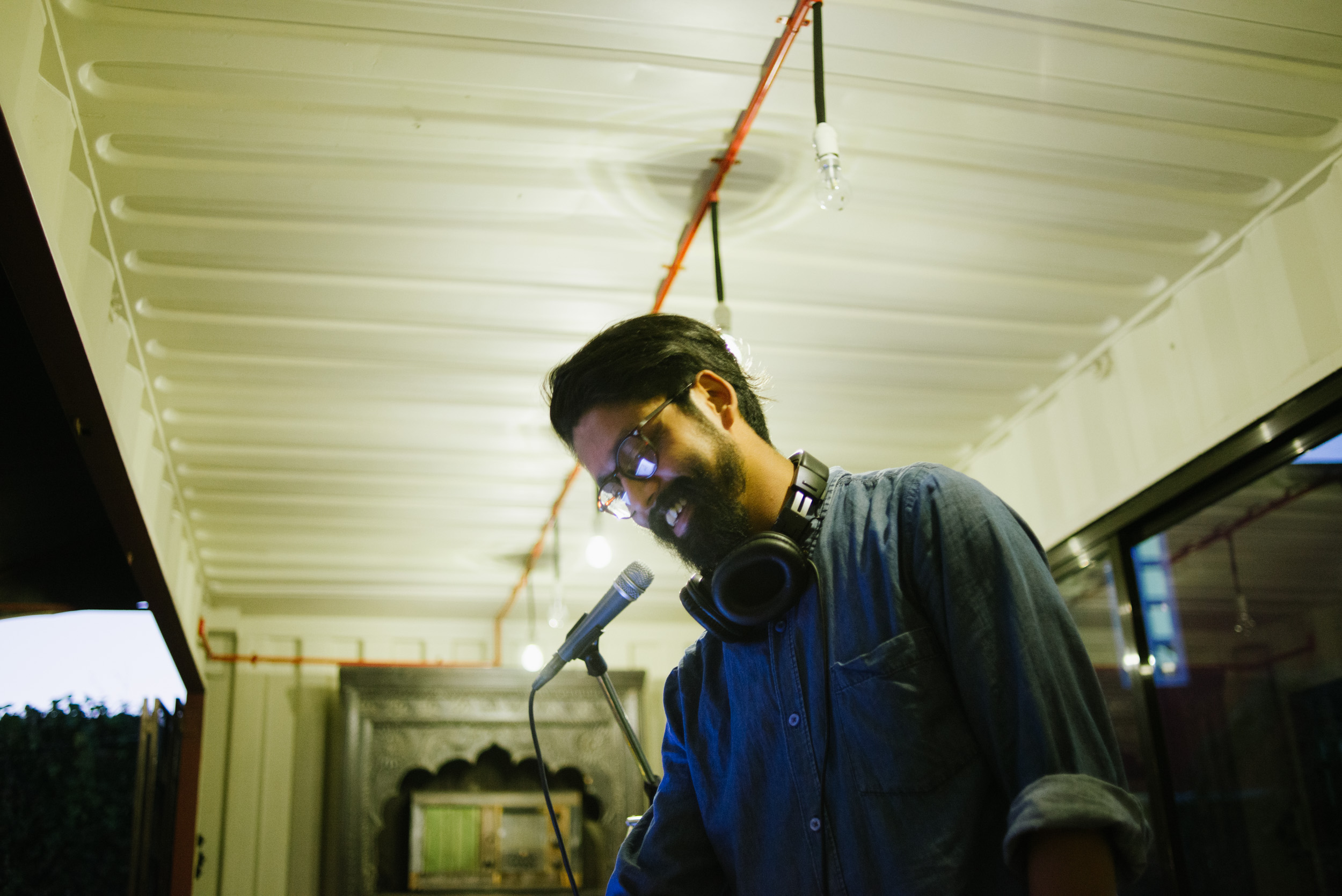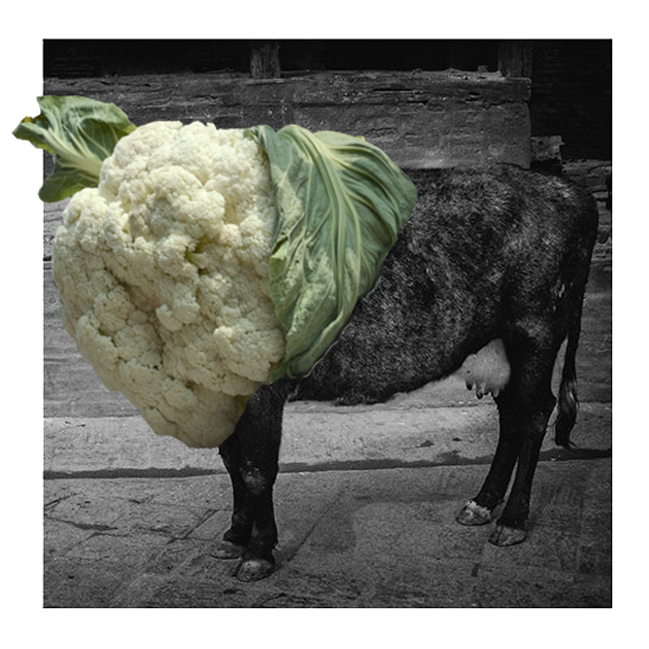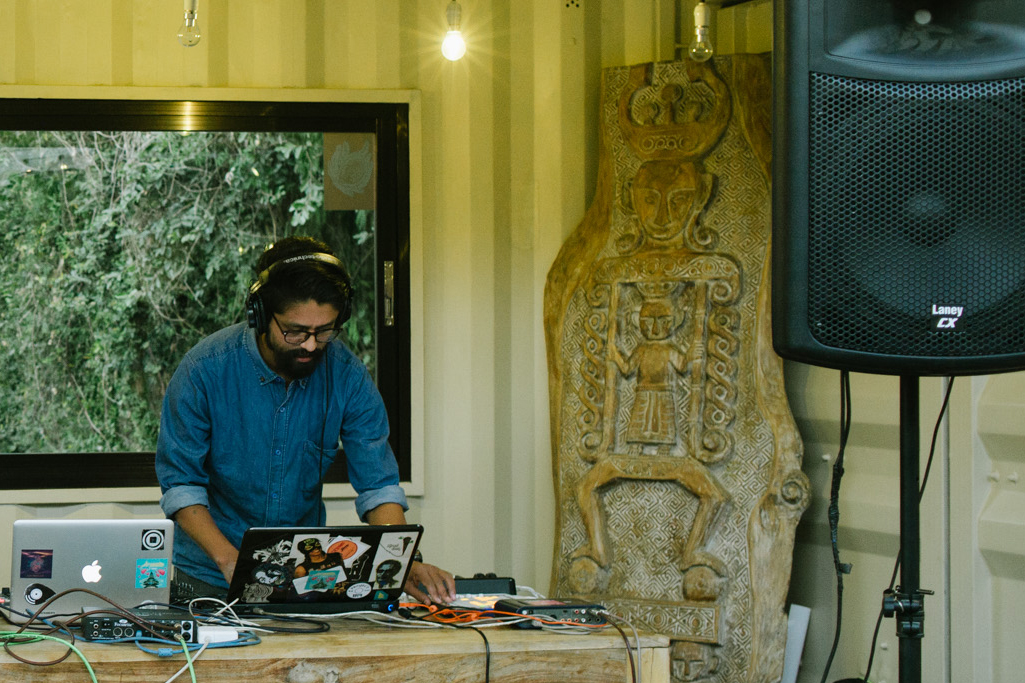Kathmandu Producer Phatcowlee: ‘To Do Stuff Here, You Have to Create Your Own Scene’
Rajan Shrestha discusses Nepal’s nascent music scene, his debut EP ‘Cinema’ and the meaning behind his bizarre moniker

Rajan Shrestha performs under the moniker “Phatcowlee.” Photo: Prasiit Sthapit
For a bedroom electronic producer, Rajan Shrestha is surprisingly well-groomed–unlike plenty of his contemporaries, who Skype into interviews with lazy scruff on their chins and barely-hidden pajamas. In comparison, the 35-year-old Nepali is a breath of fresh air, speaking into his recording mic from his Kathmandu living room outfitted in a natty T-shirt, with immaculately swooped hair and an impressive hipster beard and moustache to match.
It’s no surprise that aesthetic sensibilities come naturally to Shrestha, who actually just returned to music a couple of years ago after taking a two-year break to pursue a career as a photographer. He’s taken a course in photography in Bangladesh, and freelances as a video editor to make money. Even his unusual musical moniker, Phatcowlee, was derived from a photo of a “big-ass cauliflower” (which he pronounces “cow-lee-flower”) which he layered on photoshop with a picture of a cow. “I named the cow Lee,” jokes Shrestha.

The Phatcowlee logo is an image of a cow Shrestha superimposed with a photo of a cauliflower. Photo: Courtesy of the artist
His debut EP under the moniker is called Cinema, a four-track which is–you guessed it–cinematic. It doesn’t sound anything like an original soundtrack, however–no Hans Zimmer or Alexandre Desplat vibes to be found here. Rather, Shrestha creates sonic emotions and moods that immerse the listener in complex, curious worlds of his own conjuring. “I usually made music during nights I couldn’t sleep,” says Shrestha.
Nocturnal melancholy is definitely evident across all four songs on Cinema, but they had sunnier origins. Shrestha was inspired to make the EP when he was watching TV while eating lunch one day. “I usually flip through channels when I’m eating my lunch. I don’t usually watch TV, that’s the only time,” says Shrestha. On that particular day, he happened to flip the channel to TV Filmy, a network which broadcasts old Nepali films. “It kind of made me nostalgic about this TV program that used to come when I was small, it was called Geetanjali, which is equivalent to Chitrahaar in Doordarshan,” Shrestha says. “It’s a series of songs from films. And I started recording the TV channel, basically, with a recorder.”
Those recorded sounds are included in Cinema, along with Shrestha’s layered folk instrumentals and occasionally, his own Nepali lyrics. His voice has a soothing, uplifting quality, which often pulls the music out of the deep and moody crevices it occasionally falls into. The samples also provide welcome moments of levity; for example, EP standout “Mayalu” kicks off with a woman’s laugh and birds cooing.
The hand-recorded samples almost landed Shrestha in “kind of trouble” with music label Music Nepal, which owns most of the rights to the music in old cinema. But Shrestha is quick to emphasize that it’s “not really trouble,” because Cinema, which is a SoundCloud release via Bengaluru-based record label Consolidate, is a free release. “As long as it’s not monetized, I think I should be okay,” says Shrestha.

Shrestha organized grassroots Kathmandu music fest Sine Valley Festival last year. Photo: Prasiit Sthapit
Right now, the producer’s biggest obstacle is Kathmandu’s minuscule music scene. “Even the commercial electronic music scene is pretty small here. The [scene for] left-field kinds and the ones trying to do their own stuff is like, really tiny,” says Shrestha. “So to do stuff here, you have to create your own scene.”
That’s exactly what he’s trying to do. Shrestha, who also plays bass and guitar, organized grassroots music fest Sine Valley Festival in Kathmandu last year. He collaborated with a host of local artists to put on the DIY festival, as well as Pakistani musician Daniel Arthur Panjwaneey, who performs as Alien Panda Jury (Shrestha and Panjwaneey also make music together as Anaasir).
Beyond creating a local scene, Shrestha also wants to expand his roots beyond Nepal’s borders. While Panjwaneey has visited Shrestha in his home turf multiple times, the latter has yet to return the favor and travel to Pakistan. He wants to tour his music in India at some point down the line, too. “I haven’t travelled much,” he admits. “[But] I really want to try more music first, [more] than just like, four songs. I’m already thinking of writing an album–let’s see.”
At the end of “Kusume Rumal,” Cinema’s final track, Shrestha chuckles, just once. It’s an incongruously merry note to end an otherwise solemn song that occasionally evokes visions of monks singing in monasteries, or an imposing, widescreen shot of the Annapurna range. It leaves the listener with the distinct impression that Shrestha has a lot more up his (probably very fashionable) sleeves.
Listen to ‘Cinema’:
[soundcloud url=”https://api.soundcloud.com/playlists/337311768″ params=”auto_play=false&hide_related=false&show_comments=true&show_user=true&show_reposts=false&visual=true” width=”100%” height=”450″ iframe=”true” /]







